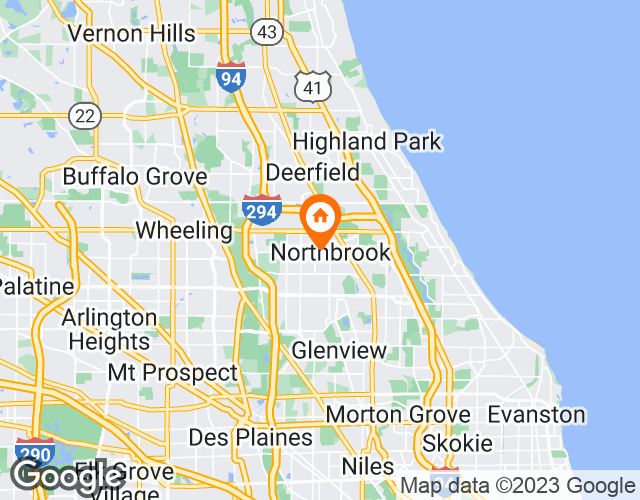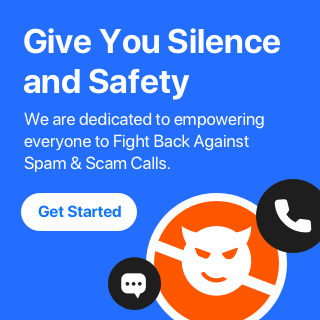(847) 426-9138
is a Robocall
This number also appears as 847-426-9138, 8474269138, (847) 426-9138
- Risk Level:very-high
- Carrier:AT&T Illinois
- Location:Dundee, Illinois

- Line Type:Landline
- Owner’s Name:Stephen D********
- Owner’s Address:****** Arabian Pkwy
- Recording:
- Transpript:Hi. Is this Michelle Scardelli? Hello? Is this Michelle Scordelli? Awesome. Am I speaking with Michelle Scardelli? Hello? Am I speaking with Michelle Scordelli?

About Dundee
Dundee-Illinois is a city located in Kane and McHenry counties in the state of Illinois, United States. The city is located on the banks of the Fox River and has a diverse population that includes people from different ethnic backgrounds. The area code for Dundee-Illinois is 224 and its zip code is 60118. Unfortunately, Dundee-Illinois has been a victim of numerous fraudulent calls in recent years. These types of calls include phone scams, unwanted robocalls, and identity spoofing. To combat these fraudulent calls, Realcall can be used to intercept incoming calls and block those that are suspicious or unwanted.
Top 20 Spam Calls

Just last week, people got RealCall protection!





Every spam call has been blocked since I’ve installed this app. I get 10-15 robocalls daily and never get distractions while I’m working or with family. Very happy with it.
00brunette





No annoying calls!! Though it also silences all calls not in contacts. I’d like to get all calls from my local phone numbers.
pennybeanpole





I own my own aesthetics business, as well as I teach yoga. It is important for me to be able to stay in touch with my clients as well as my healthcare providers as I am chronically ill but this also leads to me having incessant phone calls that I waste time on. Bec I was literally losing my mind, and, starting to waste a lot of stress on said calls that didn\'t need to go through. If you are receiving too many Robo calls or too many spam calls. This is worth your money, especially if you own your own business.
Nacomanrandysavage





Finally sanity! Thanks! No spam calls!
WENDEE WOO





Well, so far, this is blocked all of the Robo calls and scam calls so I would definitely have to say that I am happy with this app.
josh121984
Comment
20 user reports for (847) 426-9138
Block
My Amazon account
When you are late on your credit card payment, they will call you.
Amazon Prime
Aggravating
Spam
Scammer
Call Center
Scam
scam
Fake Chase Card Services phantom debt collection scam by madarchod criminals phoning from India. Chase Bank has confirmed that 847-426-9138 is not used by them!! This is what the Federal Trade Commission calls a phantom debt collection scam where the scammer pretends to be a debt collector, bank or credit agency, billing department, lawyer, or law enforcement and threatens to sue or arrest you using lies, harassment, and intimidation to collect on fake debts that you do not owe. The India scammer asks for you by your name in order to sound like a personal phone call to gain your trust, but they are auto-dialing thousands of numbers. The scammer may say "I am calling on a recorded line" just to sound official, but it is fake! The scammer either mentions an unpaid debt and past due amount that must be paid immediately or says that they have frozen your Chase account due to fraudulent activity. The scammer then asks for your online banking login credentials, Social Security number and date of birth "for verification purposes", and either tells you that you can settle the debt by paying with a credit card or demands that you wire transfer the payment for the fake debt or asks for your bank account/routing number. More than 95% of North America phone scams come from India scammers who operate hundreds of fraud, extortion, and money laundering scams every day such as posing as a fake pharmacy; fake Social Security officer saying your benefits are suspended; IRS officer collecting on fake unpaid back taxes; bill collector threatening you for fake unpaid debts; fake bank, financial, or Fedex/UPS/DHL scams; pretending to offer fake health insurance, car warranty, student loan forgiveness, credit card and debt consolidation services; posing as Amazon to falsely say an unauthorized purchase was made to your credit card or your Prime membership was auto-debited from your bank; posing as Microsoft/Dell/HP/Apple and saying your account has been hacked or they detected a problem or virus on your computer; fake "we are refunding your money" or "your account has been auto-debited" scams; fake Google/Alexa listing and work-from-home scams; posing as an electric utility or Verizon/AT&T/Comcast to say your service is suspended; fake solar panel and home purchase offers; fake fundraisers asking for donations; fake political and lifestyle phone surveys; and the scammers try to steal your credit card, bank account/routing number, Social Security number, and personal information. One India call center may cycle through a fake Social Security, computer subscription auto-renewal, pharmacy, and credit card offer scam during one week. People often hear different scams from the same spoofed Caller ID number. Scammers often use disposable VoIP phone numbers (e.g. MagicJack devices) or they spoof fake Caller ID phone numbers. Anyone can use telecom software or a third-party service to phone using fake CID names/numbers. India scammers often spoof fake "8xx-" toll-free numbers. The CID name/number is useless with scam calls unless the scam asks you to phone them back and the CID area code is almost never the origin of the call. You waste your time researching the CID number since scams use spoofed CID numbers from across the U.S. and Canada, totally invalid area codes, and also fake foreign country CID numbers; e.g. fake women crying "help me" emergency scams from India often spoof Mexico and Middle East CID numbers. India scammers also spoof the actual phone numbers of businesses such as Apple, Verizon, and U.S. banks to trick you into thinking that a call is valid. How can you avoid being scammed by phone calls? NEVER trust any unsolicited caller who sells something (most unsolicited calls are scams so your odds of saving money are very poor); asks for your Social Security number; offers a free gift or reward; threatens you with arrest/lawsuit or says you need to reply back soon (pressure tactics); asks you to access a website, download a file, wire transfer money or buy gift cards; claims suspicious activity on an online account; says your subscription is being refunded or auto-renewed/auto-debited; and all pre-recorded messages. Recorded messages are far more likely to be malicious scams, and not just telemarketing spam. A common India scam phones you with a fake Amazon recording about a purchase of an iPhone, but Amazon never robo-dials and Amazon account updates are communicated in emails. Many banks use automated fraud alert phone calls to confirm a suspicious purchase, but always verify the number that the message tells you to phone or just call the number printed on your credit card. Any unsolicited caller with a foreign accent, usually Indian, should immediately be treated as a scam. Many scams tell a lie that you recently inquired about a job, insurance, social security benefits, or that you contacted them or visited their website. Scammers try to gain your trust by saying your name when they call, but the autodialer is automatically displaying your name to the scammer or saying your name in a recording when your number is dialed using phone databases that have millions of names and addresses. India scammers often phone with an initial pre-recorded message speaking English, Spanish, or Chinese that is easily generated using text-to-speech translation software to disguise the origin of their India phone room, but then you speak to the scammer when you press 1 or call them back. Some speech synthesis software sound robotic, but others sound natural. To hide their foreign accents, some India scammers use non-Indians in their phone room. India scammers use interactive voice response (IVR) robotic software that combines voice recognition with artificial intelligence, speaks English with American voices, and responds based on your replies. IVR calls begin with: "Hi, this is fake_name, I am a fake_job_title on a recorded line, can you hear me okay?"; or "Hi, this is fake_name, how are you doing today?"; or "Hello? (pause) Are you there?"; or "Hi, may I speak to your_name?" IVR quickly asks you a short question to elicit a yes/no reply so it hangs up if it encounters voicemail. IVR robots understand basic replies, yes/no/what answers, and basic questions. To test for IVR, ask "How is the weather over there?" since IVR cannot answer complex questions. IVR robots keep talking if you interrupt them in mid-sentence. IVR usually transfers you to the scammer, but some scams entirely use IVR with the robot asking for your credit card or SSN. A common myth is that IVR calls record you saying "yes" so scammers can authorize purchases just using your "yes" voice, but scammers need more information than just a simple recorded "yes" from you - credit cards and SSN. Phone/email scams share two common traits: 1) The Caller ID name/number and the "From:" header on emails are easily faked; and 2) The intent of scam calls is malicious just as file attachments and website links on scam emails are harmful. Scams snowball for many victims. If your personal/financial data are stolen, either by being scammed, visiting a malicious website, or by a previous data breach of a business server that stores your data, then your data gets sold by scammers on the dark web who then see you as fresh meat and prey on you even more. This is why some receive 40+ scam calls everyday while others get 0 to 2 calls per day. If you provide your personal and financial data to a phone scammer, lured by fake 80%-discounted drugs or scared by fake IRS officers, you receive far more phone scams and identity theft can take years to repair. Most unsolicited calls are scams, often with an Indian accent. No other country is infested with pandemics of phone room sweatshops filled with criminals who belong to the lowest India caste and many are thieves and rapists who were serving jail time but released early due to prison overcrowding. India scammers shout profanities at you. Just laugh at their abusive language. Google "Hindi swear words" and memorize some favorites, e.g. call him "Rundi Ka Bacha" (son of whore) or call her "Rundi Ki Bachi" (daughter of whore). Scammers ignore the National Do-Not-Call Registry and asking scammers to stop calling is useless. You do these scammers a favor by quickly hanging up. But you ruin their scams when you slowly drag them along on the phone call, always give them fake personal and credit card data (16 random digits starting with 4 for Visa, 5 for MasterCard), ask them to speak louder and repeat what they said to waste their time and energy.
Fake Chase Card Services phantom debt collection scam by madarchod criminals phoning from India. Chase Bank has confirmed that 847-426-9138 is not used by them!! This is what the Federal Trade Commission calls a phantom debt collection scam where the scammer pretends to be a debt collector, bank or credit agency, billing department, lawyer, or law enforcement and threatens to sue or arrest you using lies, harassment, and intimidation to collect on fake debts that you do not owe. The India scammer asks for you by your name in order to sound like a personal phone call to gain your trust, but they are auto-dialing thousands of numbers. The scammer may say "I am calling on a recorded line" just to sound official, but it is fake! The scammer either mentions an unpaid debt and past due amount that must be paid immediately or says that they have frozen your Chase account due to fraudulent activity. The scammer then asks for your online banking login credentials, Social Security number and date of birth "for verification purposes", and either tells you that you can settle the debt by paying with a credit card or demands that you wire transfer the payment for the fake debt or asks for your bank account/routing number. More than 95% of North America phone scams come from India scammers who operate hundreds of fraud, extortion, and money laundering scams every day such as posing as a fake pharmacy; fake Social Security officer saying your benefits are suspended; IRS officer collecting on fake unpaid back taxes; bill collector threatening you for fake unpaid debts; fake bank, financial, or Fedex/UPS/DHL scams; pretending to offer fake health insurance, car warranty, student loan forgiveness, credit card and debt consolidation services; posing as Amazon to falsely say an unauthorized purchase was made to your credit card or your Prime membership was auto-debited from your bank; posing as Microsoft/Dell/HP/Apple and saying your account has been hacked or they detected a problem or virus on your computer; fake "we are refunding your money" or "your account has been auto-debited" scams; fake Google/Alexa listing and work-from-home scams; posing as an electric utility or Verizon/AT&T/Comcast to say your service is suspended; fake solar panel and home purchase offers; fake fundraisers asking for donations; fake political and lifestyle phone surveys; and the scammers try to steal your credit card, bank account/routing number, Social Security number, and personal information. One India call center may cycle through a fake Social Security, computer subscription auto-renewal, pharmacy, and credit card offer scam during one week. People often hear different scams from the same spoofed Caller ID number. Scammers often use disposable VoIP phone numbers (e.g. MagicJack devices) or they spoof fake Caller ID phone numbers. Anyone can use telecom software or a third-party service to phone using fake CID names/numbers. India scammers often spoof fake "8xx-" toll-free numbers. The CID name/number is useless with scam calls unless the scam asks you to phone them back and the CID area code is almost never the origin of the call. You waste your time researching the CID number since scams use spoofed CID numbers from across the U.S. and Canada, totally invalid area codes, and also fake foreign country CID numbers; e.g. fake women crying "help me" emergency scams from India often spoof Mexico and Middle East CID numbers. India scammers also spoof the actual phone numbers of businesses such as Apple, Verizon, and U.S. banks to trick you into thinking that a call is valid. How can you avoid being scammed by phone calls? NEVER trust any unsolicited caller who sells something (most unsolicited calls are scams so your odds of saving money are very poor); asks for your Social Security number; offers a free gift or reward; threatens you with arrest/lawsuit or says you need to reply back soon (pressure tactics); asks you to access a website, download a file, wire transfer money or buy gift cards; claims suspicious activity on an online account; says your subscription is being refunded or auto-renewed/auto-debited; and all pre-recorded messages. Recorded messages are far more likely to be malicious scams, and not just telemarketing spam. A common India scam phones you with a fake Amazon recording about a purchase of an iPhone, but Amazon never robo-dials and Amazon account updates are communicated in emails. Many banks use automated fraud alert phone calls to confirm a suspicious purchase, but always verify the number that the message tells you to phone or just call the number printed on your credit card. Any unsolicited caller with a foreign accent, usually Indian, should immediately be treated as a scam. Many scams tell a lie that you recently inquired about a job, insurance, social security benefits, or that you contacted them or visited their website. Scammers try to gain your trust by saying your name when they call, but the autodialer is automatically displaying your name to the scammer or saying your name in a recording when your number is dialed using phone databases that have millions of names and addresses. India scammers often phone with an initial pre-recorded message speaking English, Spanish, or Chinese that is easily generated using text-to-speech translation software to disguise the origin of their India phone room, but then you speak to the scammer when you press 1 or call them back. Some speech synthesis software sound robotic, but others sound natural. To hide their foreign accents, some India scammers use non-Indians in their phone room. India scammers use interactive voice response (IVR) robotic software that combines voice recognition with artificial intelligence, speaks English with American voices, and responds based on your replies. IVR calls begin with: "Hi, this is fake_name, I am a fake_job_title on a recorded line, can you hear me okay?"; or "Hi, this is fake_name, how are you doing today?"; or "Hello? (pause) Are you there?"; or "Hi, may I speak to your_name?" IVR quickly asks you a short question to elicit a yes/no reply so it hangs up if it encounters voicemail. IVR robots understand basic replies, yes/no/what answers, and basic questions. To test for IVR, ask "How is the weather over there?" since IVR cannot answer complex questions. IVR robots keep talking if you interrupt them in mid-sentence. IVR usually transfers you to the scammer, but some scams entirely use IVR with the robot asking for your credit card or SSN. A common myth is that IVR calls record you saying "yes" so scammers can authorize purchases just using your "yes" voice, but scammers need more information than just a simple recorded "yes" from you - credit cards and SSN. Phone/email scams share two common traits: 1) The Caller ID name/number and the "From:" header on emails are easily faked; and 2) The intent of scam calls is malicious just as file attachments and website links on scam emails are harmful. Scams snowball for many victims. If your personal/financial data are stolen, either by being scammed, visiting a malicious website, or by a previous data breach of a business server that stores your data, then your data gets sold by scammers on the dark web who then see you as fresh meat and prey on you even more. This is why some receive 40+ scam calls everyday while others get 0 to 2 calls per day. If you provide your personal and financial data to a phone scammer, lured by fake 80%-discounted drugs or scared by fake IRS officers, you receive far more phone scams and identity theft can take years to repair. Most unsolicited calls are scams, often with an Indian accent. No other country is infested with pandemics of phone room sweatshops filled with criminals who belong to the lowest India caste and many are thieves and rapists who were serving jail time but released early due to prison overcrowding. India scammers shout profanities at you. Just laugh at their abusive language. Google "Hindi swear words" and memorize some favorites, e.g. call him "Rundi Ka Bacha" (son of whore) or call her "Rundi Ki Bachi" (daughter of whore). Scammers ignore the National Do-Not-Call Registry and asking scammers to stop calling is useless. You do these scammers a favor by quickly hanging up. But you ruin their scams when you slowly drag them along on the phone call, always give them fake personal and credit card data (16 random digits starting with 4 for Visa, 5 for MasterCard), ask them to speak louder and repeat what they said to waste their time and energy.
Debt Collector
Idk
Collections
Not a spam or spoof
Too many calls
block
I did not answer, but I had a feeling it was a scam because chase does not call you ever. they usually notify you about your payment due by email or if you’re often vigilant by logging in it will tell you there. Otherwise they don’t call.
Called about past due payment
MORE
Similar Number
Media News

Amazon Scams Become the Top Source of Consumer Fraud Losses, RealCall Report Reveals

Spam Blocking Service Provider RealCall Warns of Midterm Election Scams

Spam-blocking App RealCall: How to Deal with Growing Robocall Scams

Don’t be a chop: avoid pig butchering scams

Spam blocking app RealCall warns of “pig butchering” scams

RealCall Spam Call Blocker App for iOS Review








